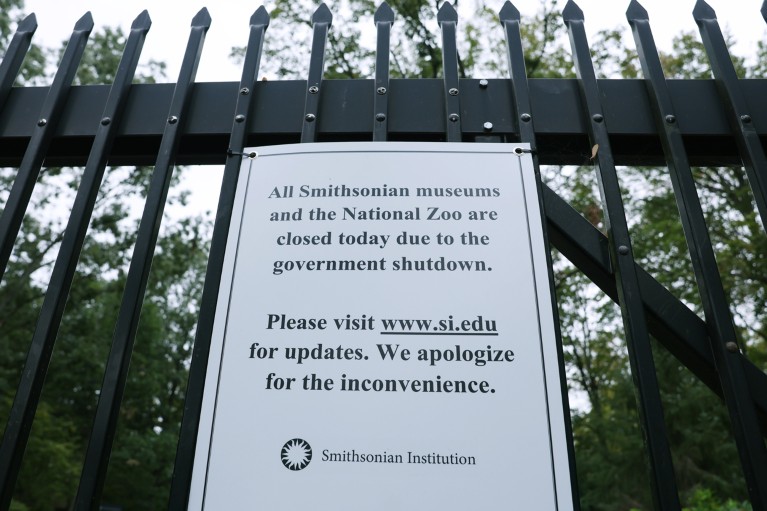Scientists lose jobs and grants as US government shutdown takes a toll
Summary
Update: A US district judge, Susan Illston, temporarily blocked the mass lay-offs after unions sued; a hearing is scheduled for 28 October.
The US government shutdown, entering its third week, is inflicting tangible harm on US science. The administration announced 4,100–4,200 reductions in force (RIFs) for federal employees, and multiple agencies and facilities have suspended activity. Hundreds of CDC staff received lay-off notices (about 1,300, with 700 later rescinded), threatening essential public-health surveillance programmes such as NHANES. The Smithsonian closed museums and the National Zoo, and some federal laboratories have halted work. The Department of Energy announced cuts of nearly US$7.6 billion across 223 energy projects (grants to 33 academic institutions total roughly $620 million). Grant processing at agencies including the NSF has been paused, and unions representing federal workers have mounted legal challenges.
Author style
Punchy: This is a high-impact, evolving story — it matters for researchers, universities and public-health systems. Read the detail if you care about data continuity, grants or jobs.
Key Points
- The administration filed for 4,100–4,200 federal job reductions, an unprecedented move during a shutdown.
- About 1,300 CDC employees received RIF notices; 700 were rescinded, but key teams (including NHANES planning) have been decimated.
- Some CDC staff have been issued lay-off notices for a second time since spring, risking the continuity of long-running health surveys.
- Smithsonian museums, the National Zoo and some research facilities were closed; many federal labs suspended operations.
- The Department of Energy cut almost US$7.6 billion from 223 energy projects, affecting grants worth about $620 million across 33 universities.
- Grant processing at agencies such as the NSF has been paused; unions sued over the lay-offs and a judge temporarily blocked the mass dismissals.
Context and relevance
This shutdown is more than a short-term stoppage: it disrupts long-term datasets, stalls renewable-energy and public-health research, and puts jobs and institutional programmes at risk. For universities and labs dependent on federal funding, grant cancellations and administrative delays can mean cancelled projects, delayed hires and gaps in surveillance that affect policy and public safety.
Why should I read this?
Look — if you work in research, health or energy (or manage teams that do), this is where projects get cut and data collection grinds to a halt. We’ve boiled down the fallout so you can see the immediate risks: funding gone, staff out, and vital surveys in jeopardy.

